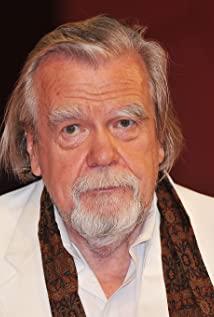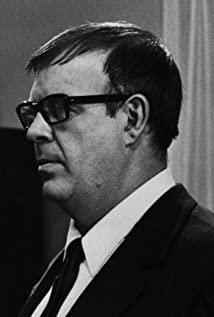-
Emie 2022-03-13 08:01:01
liar lawyer
The keen Kafka perceives the change of suffering to people, reflects on the nature of human beings, and presents the alienation of people who have suffered in his works. When we are producing, our hands gradually become the shape of tools. We exploit others and are also affected. Exploiting...
-
Ayla 2022-03-13 08:01:01
The ideological subject behind the trial revealed
With a strong passion for drama and literature, Orson Welles constantly devotes himself to thinking about the cultural connotation and ideological essence entrenched in the text, and uses a unique vision to expand the sensory barriers inherent in the latitude of the text. The absolute audiovisual...
-
Marge 2022-03-20 09:03:07
Wells is really awesome. This is the only way that Kafka's novels should be visualized. The crazy alternation of high-angle and low-angle shooting, the contrast between small people and big scenes, the paranoïa edited quickly, infinitely high and open space, everything is just an illusion of social justice and morality. Perkins' casting is perfect, thin, neurotic, powerless, innocent, tragic, natural, but unfortunately gay's temperament is so strong that no amount of kisses can hide it.
-
Esmeralda 2022-03-26 09:01:14
Unimaginable admiration, I am afraid Welles is the closest copywriter to Kafka. In fact, human alienation is only one pole of Kafka's work, which also points to the chaotic structure of bureaucratic society. The studio is the perfect metaphor, a room in the movie that is claustrophobic on the one hand, and completely transparent on the other, watched by countless eyes. The space is as chaotic as The Shining, behind each door is a random microscopic part of the social structure, I can't imagine the storage room in the male protagonist's office area, which will be doubled as a punishment bureaucracy, it is simply Wells' room 237. Another of Welles' wisdom is to make the hero have a self-destructive intelligence. The protagonist of Kafka's works is definitely not a stylized and absolutely passive victim of society, but an infected patient who has given up treatment in a plague-ridden world, a combination of victim, accomplice and communicator; K is reluctant. In the case of becoming an accomplice in his own ending, he can't be superman, and he will never give up being superman, so he accuses the outside world that is accompanied by the same degree of self-denial.
Related articles
-
Joseph K.: I make you very uncomfortable, don't I? It distresses you to find me in your company. Yes, I've been told about that. Before, I thought you took me for a judge or at least an official of the court. I even thought you were afraid of me, but what you're feeling is pain. You don't like what you see, do you? It's my mouth. You think you can tell from my mouth that I'm condemned, that I'm going to be found guilty? Guilty!
-
Joseph K.: There are several possibilities I haven't explored yet.
Priest: You expect too much from outside help, especially from women.
Joseph K.: Women have influence! Take that Examining Magistrate. If he sees a woman, he'll climb over the bench and knock down the defendant just to get his hands on her. Yeah, that's an aspect of the courts you probably don't know about.



















































